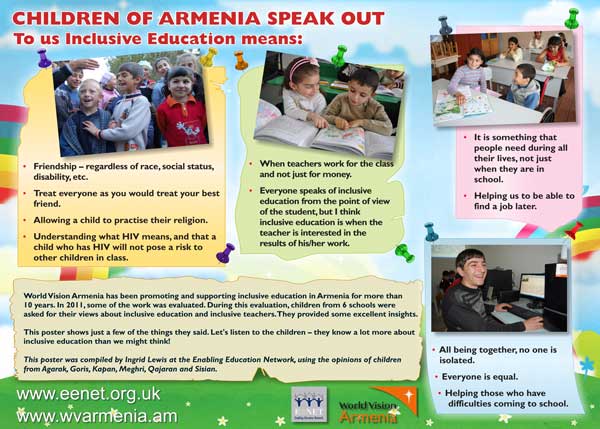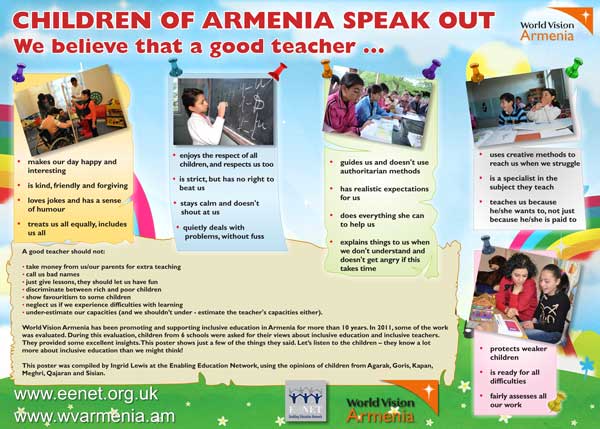We specialise in qualitative data collection and listening to grassroots stakeholders.
Effective inclusive education projects start with a clear understanding of the context and of stakeholders’ interests, experiences and needs. Some projects require extra help with investigating the situation, particularly with facilitating diverse stakeholders to express their views.
All projects also require some degree of monitoring and evaluation – and this should not just be a last-minute task to satisfy donor expectations. Monitoring and evaluation is an integral part of learning about what is working well and what improvements are needed, so that we can constantly make our projects and schools more inclusive for more learners.
EENET’s expertise lies in qualitative investigations and listening to the views of stakeholders: girls and boys with and without disabilities, teachers, parents, community members, local leaders and organisational representatives, and so on. We also carry out quantitative data collection, but our main interest is in enabling those who are least heard to have a voice in needs assessment and evaluation processes.
In particular we specialise in:
- using diverse participatory methods to help stakeholders reflect critically and analytically on aspects of their lives and communities that they may take for granted;
- using photography, video and art to enable stakeholders to document and communicate their experiences and ideas. This documenting informs monitoring and evaluation, but can also be used for seeking future funding or for advocacy purposes;
- supporting stakeholders to work as co-researchers, as opposed to being just the subjects of research. This is vital for ensuring long-term monitoring and improvements, as opposed to just having one-off evaluations conducted by external consultants where no one other than the consultant feels they ‘own’ the findings;
- supporting organisations to build participatory monitoring processes into a project from the start, so that information is constantly gathered, analysed and used to make improvements. There is very little value in waiting until the last 3 months of a project to ask what has worked well and what needs to be improved;
- looking for the positives that already exist and that can be built on, as opposed to only looking for the problems that need to be solved;
- developing outputs that make complex findings accessible for all stakeholders. For instance, we may produce a short public summary of findings, or a poster that captures stakeholders’ opinions. These 2 advocacy posters were produced using children’s views collected during a project evaluation in Armenia.
If you would like to find out more about our approach to needs analysis and evaluations, please contact us.
Please note that due to contractual obligations we are not able to publish online many of the needs analysis and evaluation reports that we write, but if you contact us we can show you samples of work.


